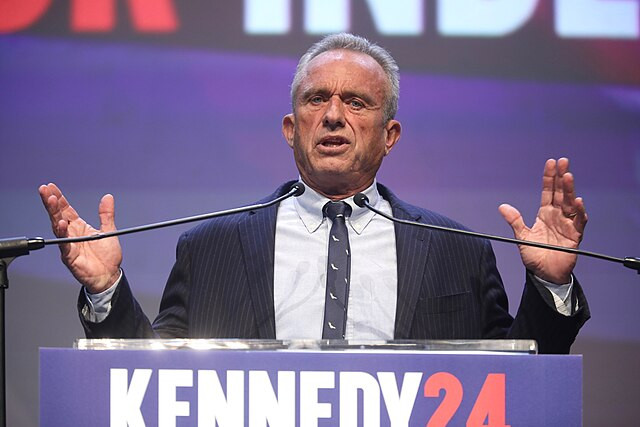Robert F. Kennedy Jr., who recently ended his independent bid for the presidency, has provided new insights into the factors behind his decision to withdraw and his subsequent endorsement of former President Donald Trump. In his first interview since dropping out of the race, Kennedy claimed that his campaign was hampered by what he describes as systematic censorship by the media, which he believes severely limited his ability to reach voters.
Speaking on "Fox News Sunday" with Shannon Bream, Kennedy reflected on the challenges his campaign faced, stating, "It became clear to me that I did not have a path to victory. Sixteen months of censorship, of not being able to get on any network really except for Fox." He contrasted his experience with that of Ross Perot, who, during his independent presidential campaign in 1992, had 34 appearances on major networks within ten months. In contrast, Kennedy lamented that he had only two such appearances in 16 months, a discrepancy he believes significantly contributed to his inability to gain traction.
Kennedy also disclosed details of his discussions with Trump, revealing that the former president had reached out to him multiple times throughout his campaign. Notably, Kennedy mentioned that Trump contacted him just hours after an assassination attempt against Trump in July. According to Kennedy, Trump proposed the idea of forming a unity government, a concept that intrigued Kennedy despite their differing political views. "We agreed that we'd be able to continue to criticize each other on the issues where we don't agree, but these issues are so important and they're a way of unifying the country," Kennedy said, highlighting their shared priorities of ending the Ukraine war, preventing censorship, and promoting children's health.
Kennedy's departure from the race and his endorsement of Trump have sparked considerable debate and speculation, particularly regarding his potential role in a future Trump administration. While no formal promises were made, Kennedy expressed his intention to actively campaign for Trump, emphasizing that their collaboration would focus on issues of mutual concern.
The move has not been without controversy, especially within Kennedy's own family. Known as one of America's most prominent political dynasties, the Kennedy family has largely distanced itself from RFK Jr.'s political endeavors in recent years, particularly due to his penchant for promoting conspiracy theories. This rift was made even more apparent when several of his family members, including his sister Kerry Kennedy, issued a public statement condemning his endorsement of Trump. "Our brother Bobby's decision to endorse Trump today is a betrayal of the values that our father and our family hold most dear," Kerry Kennedy wrote on X (formerly Twitter). "It's a sad ending to a sad story."
In response to his family's disapproval, Kennedy expressed understanding and empathy. "I understand that they're troubled by my decisions," he told Bream, acknowledging the deep ties his family has with the Democratic Party. Despite these differences, Kennedy emphasized the importance of maintaining familial bonds and mutual respect, even in the face of political disagreements.
Kennedy also took a moment to acknowledge his wife, actress Cheryl Hines, who has publicly supported him throughout his campaign, despite her discomfort with some of his political decisions. "I am so grateful to my amazing wife Cheryl for her unconditional love, as I made a political decision with which she is very uncomfortable," Kennedy wrote in a post on X. He expressed hope that the country could embrace a similar spirit of love and unity, even amidst deep political divides.






